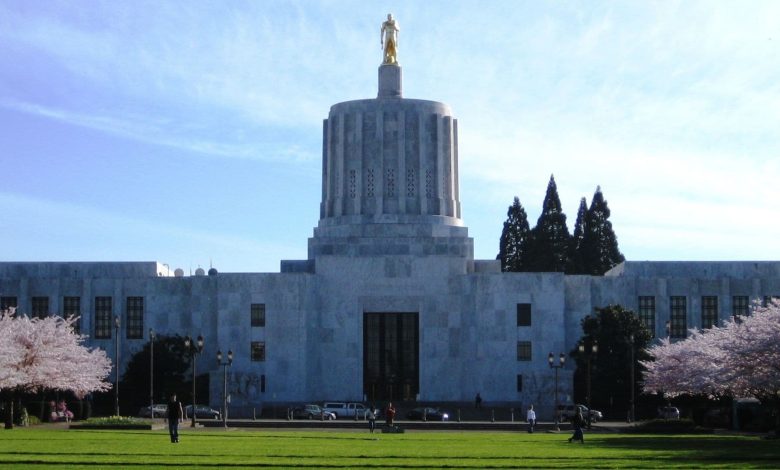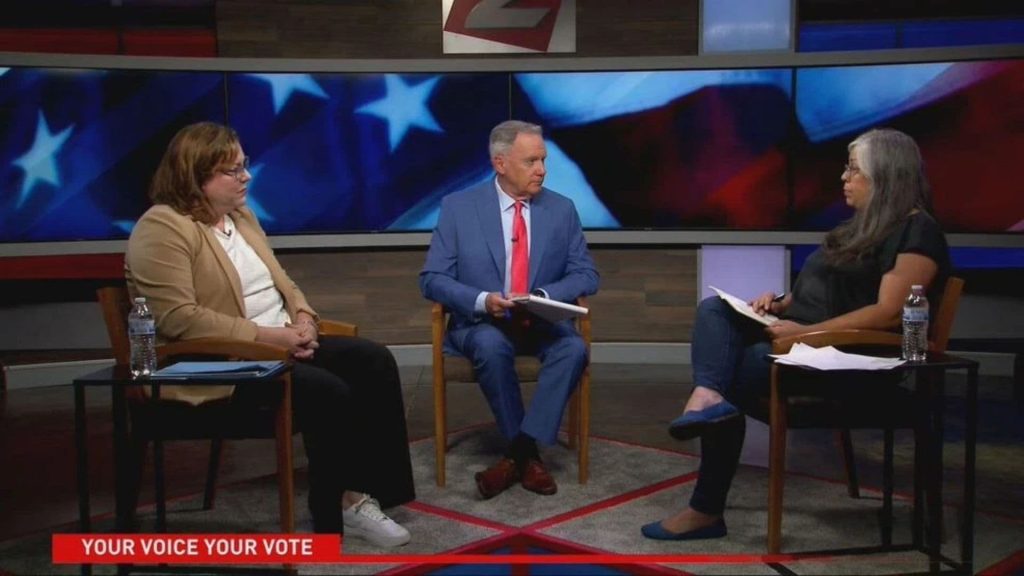
Oregon Ballot Measure 118, officially titled the Corporate Tax Revenue Rebate for Residents Initiative, will be on the ballot in Oregon on November 5, 2024. It seeks to significantly change the state’s corporate tax structure and introduce a novel resident rebate program. Let’s break down its key components, potential benefits, and concerns surrounding its implementation. Oregon Measure 118’s core objective is to increase the minimum tax corporations pay in Oregon, with the added revenue directed towards annual rebates for eligible residents.
Key Provisions:
●Increased Minimum Tax: The current minimum tax for corporations is based on a tiered system, capped at $100,000 for sales exceeding $100 million. Measure 118 proposes to add a 3% tax on sales exceeding $25 million, effectively removing the existing cap.
●Resident Rebates: The increased revenue from the corporate tax will be distributed equally to residents who have lived in Oregon for more than 200 days in a year. The measure also extends this benefit to dependents and wards of eligible individuals. Initial estimates suggest a rebate of around $1,600 per person, though the final amount may vary.
Arguments For and Against Measure 118
Measure 118 has garnered both strong support and opposition from various stakeholders, highlighting the potential benefits and drawbacks of its implementation.
Support for Measure 118
Proponents, led by the Oregon Rebate campaign, argue that the measure will:
●Reduce Poverty: The substantial rebates are projected to significantly reduce poverty levels, particularly child poverty, by providing families with a direct cash infusion.
●Address Wealth Disparity: By channeling revenue from large corporations to individual residents, the measure aims to mitigate the growing wealth gap in Oregon.
Supporters include the Oregon Progressive Party, Oregon Working Families Party, Pacific Green Party, and Progressive Democrats of America, along with various unions and organizations.

Opposition to Measure 118
Opponents, led by the No on 118 campaign, raise concerns about:
●Economic Impact: They contend that the increased corporate tax burden will make Oregon businesses less competitive, potentially leading to job losses and reduced economic activity. Some argue that the tax will disproportionately affect businesses with low profit margins, such as the grocery industry, even if they are not subject to the minimum tax.
●State Budget Shortfall: Critics point out that while the tax increase is projected to generate significant revenue, much of it will be offset by reductions in other tax collections and increased expenditures related to the rebate program. This could result in a budget shortfall, jeopardizing funding for essential services.
●Administrative Challenges: The measure’s “hold harmless” provision, designed to protect residents from losing federal benefits due to the rebate, presents complex administrative hurdles.
Opponents include government officials like Gov. Tina Kotek (D) and U.S. Reps. Lori Chavez-DeRemer (R) and Val Hoyle (D), as well as corporations like Intel, Nike, and Koch Industries, and organizations like the Oregon Business Council and Oregon Business & Industry.
Potential Impact on Businesses
The impact of Measure 118 on businesses is a central point of contention. The Oregon Legislative Revenue Office estimates that the measure will:
●Increase corporate taxes by an estimated $8 billion in the first year and nearly $10 billion within five years.
●Shift the source of corporate excise tax collections from net income to the minimum tax.
●Lead to significant increases in corporate taxes across various sectors, with the wholesale and retail sector facing the most significant increase – from $396 million to $3,376 million.
However, it’s crucial to remember that businesses are not taxed solely on their gross sales. Corporations are still required to calculate their taxes based on their net income and pay whichever amount is higher. The minimum tax only comes into play when a corporation’s net income tax liability is lower than the minimum tax threshold.
The Alaskan Model and its Relevance to Oregon
Proponents often cite the Alaska Permanent Fund Dividend as a successful example of a similar rebate program. Funded by oil extraction taxes, this program provides annual cash payments to eligible residents.
Opponents argue that the comparison is flawed because the Alaskan program is funded by a separate revenue stream – investment earnings from a fund built over decades with oil royalties – and not a gross receipts tax like Measure 118. Additionally, the Alaskan program has been in place for over 40 years, providing a longer timeframe to assess its impact.

Timeline of Events
- September 6, 2022: Initiative Petition #15 filed.
- September 19, 2022: Initiative Petition #17 (later known as Measure 118) filed.
- September 23, 2022: Initiative Petition #15 withdrawn.
- March 2, 2023: Initiative Petition #17 cleared for signature gathering.
- July 1, 2024: Campaign reports collecting 167,547 signatures for Initiative Petition #17.
- July 3, 2024: 165,426 unverified signatures submitted for Initiative Petition #17.
- July 5, 2024: Deadline for signature submission.
- July 24, 2024: Secretary of State reports Initiative Petition #17 qualified for the ballot as Measure 118.
- September 2024: Legislative Revenue Office publishes report #7-24, analyzing Measure 118.
- November 5, 2024: Election Day. Oregon voters will decide on Measure 118.
- January 1, 2025: Measure 118 goes into effect if passed.
- December 31, 2025: Deadline for DOR to determine the first rebate amount under Measure 118.
- 2026: First rebates distributed to eligible Oregon residents if Measure 118 passes.
FAQ
What is Oregon Measure 118?
Oregon Measure 118, also known as the Corporate Tax Revenue Rebate for Residents Initiative, proposes to increase the corporate minimum tax in Oregon and distribute the increased revenue to eligible Oregon residents.
How Would Measure 118 impact Corporate Taxes?
The measure would add a 3% tax on annual Oregon sales exceeding $25 million for both C-corporations and S-corporations, in addition to the existing minimum tax. It also removes the current minimum tax cap of $100,000 for sales above $100 million. This would significantly increase the tax burden for corporations with sales above $25 million.
Who Would Receive the Rebates?
The rebates would be distributed equally to all individuals residing in Oregon for more than 200 days of the year, including dependents and wards. Eligibility is not based on income or need.
How Much Would the Rebate Be?
The exact rebate amount is unknown and would vary annually based on the collected revenue. Initial estimates suggest the rebate could be between $1,000 and $1,600 per person, but this is subject to change.
What Are the Arguments for Measure 118?
Supporters argue the measure would reduce poverty in Oregon by providing a significant financial boost to residents, especially low-income families. They also highlight that the tax increase only affects large corporations.
What are the arguments against Measure 118?
Opponents contend that the measure would negatively impact Oregon’s economy by increasing the cost of goods and services, potentially driving businesses out of the state. They also point out that the tax revenue is double-obligated, causing a budget shortfall and potentially jeopardizing funding for essential services.
How would Measure 118 affect the state budget?
While Measure 118 is projected to raise billions in new revenue, analysis suggests it would actually create a budget shortfall due to the rebate program, reduced revenue from other taxes, and double-obligation of funds.
Does Measure 118 have a “hold harmless” provision?
Yes, the measure includes a provision to protect residents from losing federal benefits due to the rebate being counted as income. If federal waivers are denied, the state would reimburse individuals for any reduction in benefits. However, the implementation and cost of this provision remain uncertain.